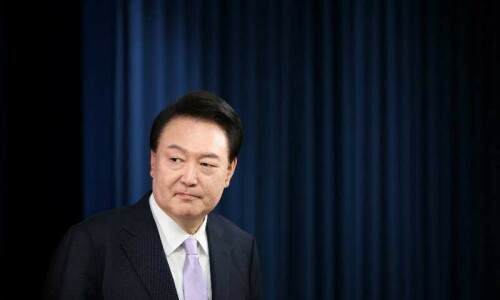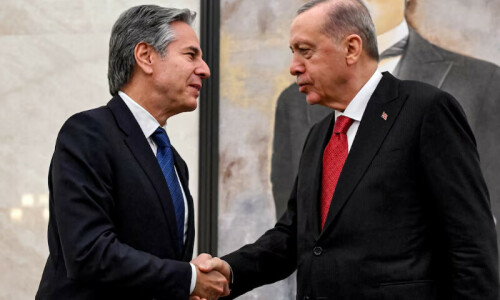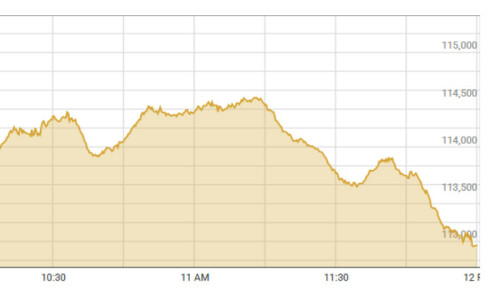ISLAMABAD, Sept 24: A request for increase in consumer tariff filed by the new management of the Karachi Electric Supply Company (KESC) has put the federal government in a quandary because it feels that Al Abraj — the new owner — is a non-entity in the eyes of the law.
Informed sources said Al Abraj had filed a petition before the National Electric Power Regulatory Authority (Nepra) a couple of weeks ago seeking up to 80 per cent increase in electricity rates for some residential consumers. The average increase sought by the new KESC management is about 35 per cent.
These sources said the government was willing to increase the KESC tariff by about 31 per cent to ensure uniform rates across the country following a similar increase allowed to distribution companies of Wapda early this month, but the transfer of KESC management before a three-year period had put it into a difficult legal situation. Under the terms of KESC privatisation, the original buyers — Al Jomaiah group of Saudi Arabia — could not sell its stakes in the utility before November 29, 2008. The UAE-based Al Abraj has already taken over the management from the Saudi group.
After receiving the request of the new management, Nepra wanted to seek comments from privatisation commission and the ministry of water and power to know if Al Abraj was the legal owner of the Karachi-based power utility. It also asked if the KESC tariff could be subjected to structural changes given the fact that a tariff formula for eight years had been allowed in 2004 to provide ‘comfort level’ to private buyers.
According to sources, the privatisation commission has said that it is unaware of any change in the KESC management which legally should continue to remain in the hands of Al Jomaiah-led consortium for three years after the privatisation.
The commission had sold about 73 per cent government stakes in the utility to the consortium on November 28, 2005.
However, the water and power ministry has so far made no comments on the tariff petition.
Sources in the ministry told Dawn that water and power secretary Ismail Qureshi was surprised by the tariff petition filed without advance consultations with the ministry or completion of legal formalities. He is reported to have issued instructions not to process the petition or submit comments to Nepra until his return from a foreign visit, probably after Eid-ul-Fitr.
The KESC’s long-term tariff mechanism expires in 2012, but allows biannual adjustments on account of pass-through items like fuel cost, inflation and operation and maintenance cost. Nepra has been allowing increase in KESC tariff under the fuel adjustment formula twice a year since its privatisation but the government has been picking up this increase as subsidy to maintain uniform electricity rates in the country. Last year, the government provided about Rs20 billion subsidy to KESC and allocated about Rs13.5 billion for the current year.
Informed sources said the private owners of the utility did not make investments in its generation and distribution infrastructure that it was required under the privatisation deal to reduce about 40 per cent of system losses and to ensure smooth power supply to consumers. It failed on both these counts and instead sold majority shares to the UAE-based group before the agreed schedule.
Financially, the company is in a bad shape. It has been unable to clear over Rs56 billion electricity arrears to the Pakistan Electric Power Company — a Wapda successor — on account of power purchases and over Rs10 billion to oil suppliers. Early this month, the federal government removed a legal hitch that restricted KESC’S fuel-based tariff increase beyond five per cent. As a result, the full impact of oil prices has to be passed on to consumers every month.
A meeting of the ECC decided to treat the KESC on a par with distribution companies of Wapda so that the National Transmission and Dispatch Company charged the same power purchase rates from the KESC as the distribution companies.
Under the decision, the KESC will be able to recover full financial cost of fuel oil from consumers while its power purchase cost would drop by more than 40 per cent.














































Dear visitor, the comments section is undergoing an overhaul and will return soon.